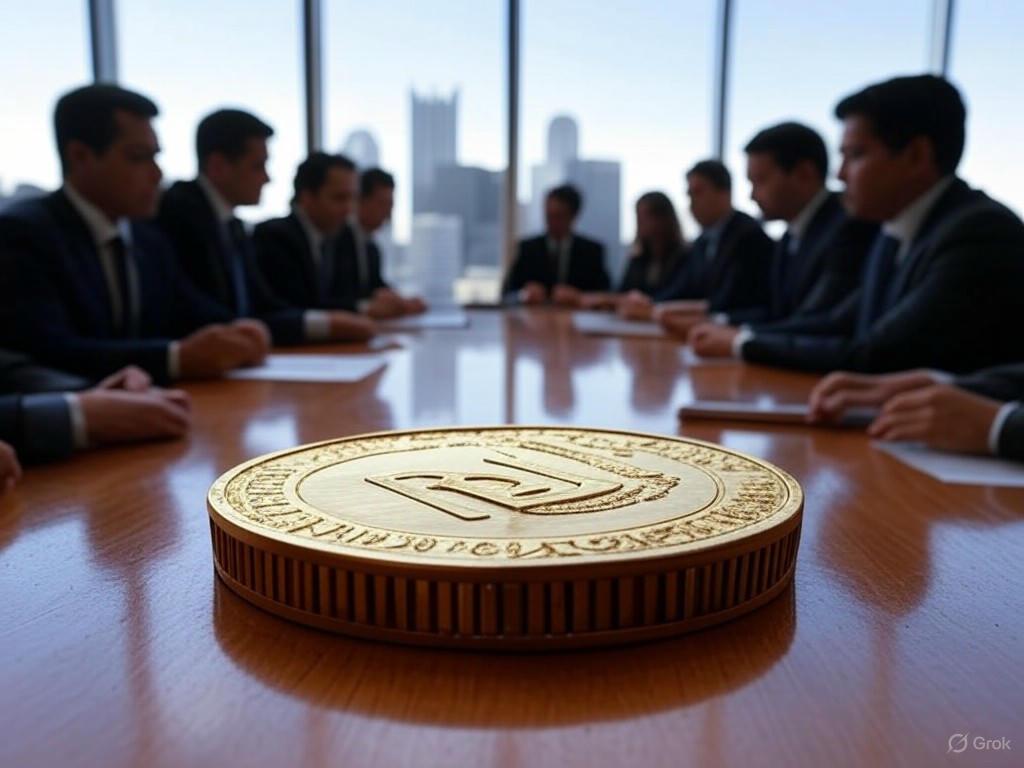In a whirlwind of corporate strategy, U.S. Steel has officially become part of the vast Nippon Steel universe. Yet, what keeps the legacy American company rooted, is something called a "golden share." This unique stake allows the U.S. government to wield significant control over the operations of the newly merged entity, effectively acting as a guardian over key corporate decisions that may impact national security and economic interests.
This "golden share" is not just a figurehead. It grants veto power over critical decisions like idling plants or slashing jobs, ensuring that the U.S. remains closely woven into the strategic fabric of U.S. Steel’s operations[1]. President Trump underscored the importance of maintaining production for at least a decade with the promise of "no layoffs and no outsourcing whatsoever." This bold maneuver aims to affirm U.S. Steel’s identity as fundamentally American, despite its new foreign ownership[2].
The notion of a golden share may appear novel, but it's not unprecedented. Countries like Brazil have implemented similar measures, notably with Embraer, to maintain control over industries deemed vital. For U.S. Steel, the transformation of its governance ensures that strategic headquarters remain in Pittsburgh, with an American CEO at the helm and major decisions continually aligned with national interests[3]. While this may cool some domestic concerns over foreign control, it spotlights a growing trend wherein nations secure influence in privately-held strategic enterprises through legislative and shareholder agreements.
However, the deal raises questions about U.S. Steel’s future in innovation and competition. With governance tied to government oversight, can Nippon Steel's ambitions to upgrade and modernize U.S. Steel be effectively balanced with the restrictions and approvals required by this share? Some skeptics argue that the golden share might lead to bureaucratic delays.
Amidst the political and economic implications, the deal has prompted mixed reactions. Supporters believe it’s a safeguard for the American jobs and technological edge, while critics see it as an overreach that might curb U.S. Steel's competitive potential on global platforms. As it stands, Nippon's promised $14 billion investment into upgrading U.S. Steel's facilities reflects a positive outlook for development and modernization, potentially bolstering the aging company with fresh energies and strategies[3].
In essence, the golden share is an innovative tool used by governments to stride the line between alien ownership and national security, while aiming to ensure prosperity without sacrificing control. As U.S. Steel navigates this new chapter, the golden share might well define its path forward—a path that equally treasures national pride and global innovation.
References
1. Did Trump effectively nationalize US Steel with his 'golden share'?
2. Trump says national security concerns in Nippon-U.S. Steel deal can be resolved
3. US government to have control in Nippon Steel-U.S. Steel deal, Trump and Sen. McCormick say







